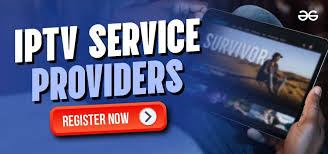N'ime ngwa ngwa na-apụtakwa ebe ntụrụndụ dijitalụ, ndebanye aha dị ka Television Protocol Ịntanetị (Intb) apụtawo dị ka onye na-agbanwe egwuregwu. It represents a shift from traditional broadcast methods to a more flexible, kenkwukorita, and personalized way of consuming television content. This article delves into the intricacies of IPTV, exploring its technology, uru, challenges, and its impact on the future of television.
Gịnị bụ IPTV?
Intb, ma ọ bụ telivishọn Protocon Internetntanetị, is a system where television services are delivered using the internet protocol suite over a packet-switched network such as the internet. This is in contrast to traditional methods of delivering television content through terrestrial, satellite, or cable formats. IPTV allows users to stream media in smaller packets, enabling the viewer to watch content almost instantaneously, regardless of location.
How IPTV Works
IPTV works by sending TV shows and movies via a private or public internet connection. It utilizes a set-top box (STB) to convert these digital signals into a format that the TV can display. The process involves streaming content in real-time, with the flexibility to pause, laghachi azụ, or fast-forward.
There are three main types of IPTV services:
- Igwe onyonyo dị ndụ: Streaming live TV broadcasts as they happen, similar to traditional TV.
- Vidiyo na-achọ (VoD): Accessing a library of movies or TV shows that can be watched at any time.
- Time-Shifted TV: Catching up on TV shows that aired earlier, allowing users to watch them at their convenience.
Benefits of IPTV
IPTV offers several advantages over traditional TV:
- Customization and Flexibility: Viewers have control over what they watch and when they watch it. The ability to select content on demand means that users are no longer tied to broadcast schedules.
- Interactivity: IPTV can offer interactive services, such as the ability to vote in live TV shows, participate in contests, or even shop directly from the TV.
- Multiscreen Experience: IPTV allows content to be accessed across multiple devices, such as smartphones, mbadamba, and smart TVs, ensuring a seamless viewing experience.
- Onu ahia: IPTV services often provide more affordable packages compared to traditional cable or satellite services, making it an attractive option for many users.
- High-Quality Content: With the advent of fiber optic internet, IPTV can deliver high-definition and even 4K content, enhancing the viewing experience.
Challenges Facing IPTV
While IPTV offers numerous benefits, it is not without its challenges:
- Achọrọ bandwit: High-quality IPTV streaming requires a strong and stable internet connection. In areas with limited internet infrastructure, this can be a significant barrier.
- Content Licensing and Rights: Navigating the complex world of content licensing and rights management is a challenge for IPTV providers, particularly when offering content across different regions.
- Piracy Concerns: IPTV’s flexibility can sometimes lead to increased piracy risks, as users might access unauthorized streams.
- Service Reliability: IPTV services rely heavily on internet connectivity, and any disruptions in service can lead to buffering, lag, or complete loss of signal, which can be frustrating for users.
Ọdịnihu nke IPTV
The future of IPTV looks promising as technology continues to advance. With the rollout of 5G networks, the potential for faster and more reliable streaming services becomes a reality. Ọzọkwa, Nchịkọta nke ọgụgụ isi (AI) and machine learning will likely lead to even more personalized viewing experiences, with content recommendations tailored to individual preferences.
Ọzọkwa, as more consumers cut the cord on traditional cable and satellite TV services, IPTV is poised to capture a significant share of the market. The ability to bundle IPTV with other services, such as internet and home automation, also makes it an attractive option for consumers seeking a streamlined digital experience.
Mmechi
IPTV represents a significant evolution in how television content is delivered and consumed. It offers unparalleled flexibility, mmekọrịta, and quality, making it a compelling choice for modern viewers. Otú ọ dị, as with any technology, it comes with its own set of challenges that must be addressed to ensure a smooth and reliable service. As the digital landscape continues to evolve, IPTV is likely to play an increasingly central role in shaping the future of television.






